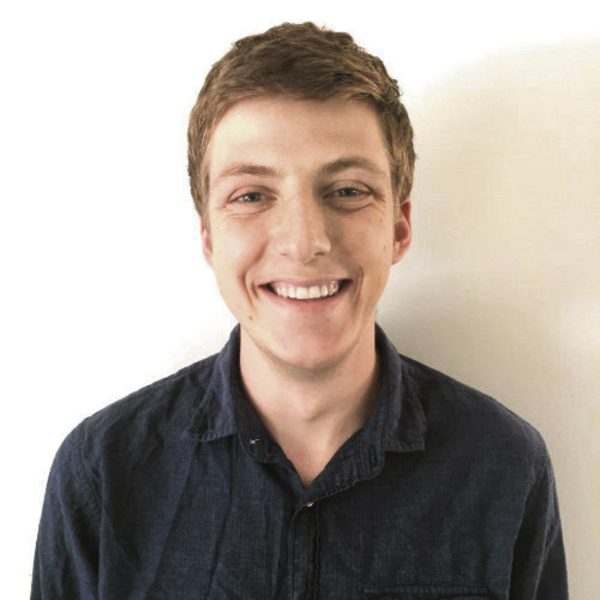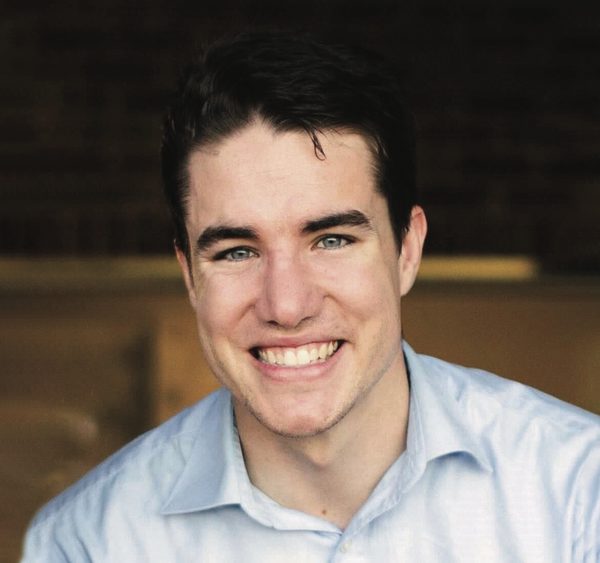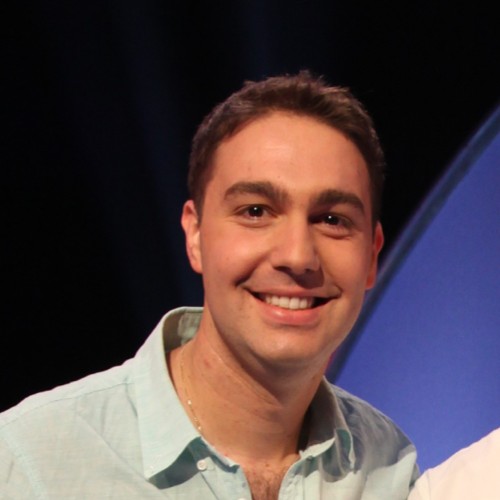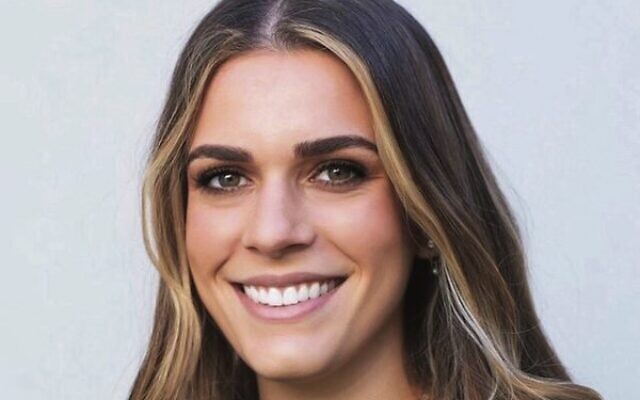Making a difference in the community
Four young NSW Jewish Board of Deputies (JBD) directors share their motivations for being involved and how they and the community benefit.
Ben Ezzes: Chair of the Education Committee
What is a highlight moment of your time with JBD?
There are so many. The greatest privilege has just been listening. It is enriching and humbling to sit down with leaders from across many different communities. You learn how many challenges we share in common, and then you start to think about and enact meaningful solutions. If I had to highlight one moment, it would be my first meeting with the Education Minister about concerns regarding antisemitism in schools. It often feels like there is a great gulf between our Shabbat table conversations about the pertinent issues of our time and the halls of power – but if you believe it can be solved, at the JBD you can make it happen.
There are lots of Jewish organisations out there to get involved with. What motivated you to get involved with NSW JBD?
I don’t think they’re mutually exclusive. Many of our members and deputies are heavily involved with other organisations. The JBD is where they come together and collaborate, speaking with one voice – whether it’s fighting antisemitism, supporting Israel in the public arena or building bridges between our community and others.
What benefits have you enjoyed as a member of JBD?

Our Shoah events are incredibly moving, especially when accompanied by all of the young people from our community. Our plenums allow members to be on the “inside-curve” on community issues and discuss issues that matter to them.
What is one of the more pressing issues facing our community, and how does the JBD help?
In my professional capacity, I am the Jewish Enrichment Coordinator at Moriah College. I see, every day, that many of the key challenges facing our community are about education. Young Jews should grow up confident to face the world and speak with pride about their traditions, and we need to have teachers who can inspire that. The JBD has partnered with the University of Sydney and affiliate schools to launch the Jewish Educators of Tomorrow program, which exposes Jewish students to the possibilities of a career in education. If our community can invest in the next generation of educators, I have high hopes for the next generation of students.
What would you say to people considering becoming a member of the JBD? What difference can they make?
There’s a saying in Pirkei Avot: “You are not obligated to complete the work, but neither are you free to desist from it.” When something goes wrong in the greater community, and it feels so massive and beyond your individual shule or organisation, it is too easy to throw up your hands and say how hard it is to be a Jew. It takes courage to step in and do something about it. The JBD is where change happens: on the Education Committee, we speak to government on curriculum, we support students suffering from prejudice – and, since this year, we’ve begun working with communal partners to build the next generation of Jewish educators.
Julia Sussman: Chair of the Community Relations Committee
What is the role of the Community Relations Committee?
Its role is to create tangible change in the Jewish community, to mitigate antisemitism and anti-Israel discourse, so we engage with non-Jewish friends, communities, leaders and organisations to build a strong network of Jewish community allies.
How does the committee benefit the NSW Jewish community?
One of my favourite programs is our “We Are All Sydney” Community Leadership Program which brings together leaders from diverse ethnic, faith and NGO communities and organisations. For many, engaging in this program will be the first time they meet a Jewish person and the first time they build friendships and alliances with the Jewish community. Participants gain an understanding of our community and go on to collaborate with us, support us and advocate with us for common causes. These relationships are built on mutual respect and understanding and are incredibly powerful in effecting change, breaking down stereotypes, and countering misconceptions and barriers.
What would you say to people who are considering becoming a member of the JBD?
It is a privilege to be part of an organisation that provides such a wide range of opportunities and strives to create positive change, not just for our Jewish community but for the larger multicultural NSW community.
Liam O’Callaghan: Chair of the Public Affairs Committee
What are some highlights of your time with the JBD?
A highlight has been our regular Shabbat dinners which may include members of state and federal Parliament, young political groups, other ethnic and faith communities, new immigrants, NGO representatives, union leaders and councillors. These dinners are an opportunity for others to experience our traditions and break down barriers.
What is the most pressing issue facing the NSW Jewish community, and how can the JBD help?

Rising antisemitism. By working together collectively, the JBD, deputies and constituent organisations are able to speak with one unified voice on matters of antisemitism and advocate for the adoption of IHRA. This is the most effective way that we can present ourselves collectively to government and help ensure that our issues are taken seriously. The Public Affairs Committee is the engine room of those discussions and strategy building, and our members are able to directly contribute to this important mission.
What would you say to people considering becoming a member of the JBD?
The JBD has given me a community within a community. Through it I’ve found friends, met like-minded young community leaders, participated in meaningful campaigns, and it’s given me multiple opportunities to upskill. The board has become central to my Jewish identity and my own version of tikkun olam.
Dane Stern: Chair of the Holocaust Remembrance Committee
What is the role of the JBD?
If you are asked what the Jewish Communal Appeal does or what the Community Security Group does, the answer may seem obvious. It’s not so obvious with the Jewish Board of Deputies. However whenever government, agencies, media or other communities seek the views of Jews in NSW, they come to the Jewish Board of Deputies which has been the representative roof body of NSW Jewry for over 75 years. There are fifty-five community organisations that are constituents of the Jewish Board of Deputies, each of them represented by a Constituent Deputy to engage on important communal matters, and there are also a similar number of Deputies independently elected.
Can you tell me about the JBD permanent committees?
The Jewish Board of Deputies has five permanent committees:
- Public Affairs, setting strategy for Jewish community dealings with politicians, media and others in the public sector
- Social Justice, working with marginalised groups
- Community Relations, representing the Jewish community to NGOs and other ethnic & faith communities
- Education, which formulates Jewish community submissions on the NSW school curriculum, dealing with antisemitism in schools
- Shoah Remembrance, of which I am the Chair. We organise the community’s annual Yom Hashoah and Kristallnacht commemorations. In April, the committee organised the communal Yom Hashoah commemoration, with keynote speaker Thomas Keneally, author of Schindler’s Ark.
In fact, the organisation has had remarkable success in involving young community members in key decision-making roles. The last three Presidents have been 40 or under, including the current president, David Ossip. Moreover, of the five committee chairs, four are in their 20s. I am at 37, the oldest committee chair by about 10 years.
What attracted you to becoming involved with the JBD?

I was first attracted by the interesting speakers at the monthly plenums then felt I wanted to make a difference so I ran for elected leadership positions. My involvement has allowed me to have my say on a wide range of issues and to contribute. I have focused in particular on Holocaust remembrance and also the acknowledgment of the 800,000 Jewish refugees from Arab lands and Iran who had been forgotten despite widespread knowledge of other refugees from the exact same conflict. I have been able to work on initiatives to raise awareness of their plight, including helping plan an annual commemoration event, assisting the Sydney Jewish Museum with their Jews from Islamic Lands exhibition, and promoting coverage in media and Jewish day schools.
Are there other benefits of being a Deputy?
As well as providing the opportunity to work on projects I am passionate about, my involvement has helped me develop important leadership skills, including chairing meetings, stakeholder engagement, conflict resolution and public speaking.
I never would have imagined speaking in front of 1000 people, introducing and thanking the person who told the world about Oskar Schindler. Being involved with the JBD made that possible.


comments